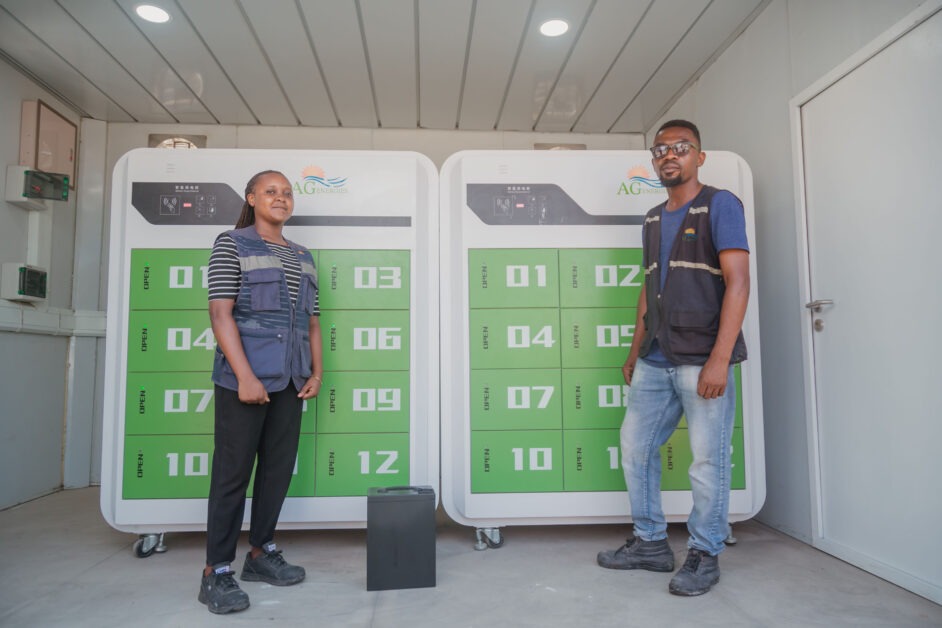Transforming Energy Access Platform’s (TEA) Disability Support Service: One year in review

Caption: Battery swap testing
The challenge
1 in 6 people globally have a disability; over 80% of them live in low- and middle-income countries, where their households are often larger, poorer, and in rural areas. People with disabilities have higher energy needs than people without disabilities, for everyday accessibility and regular use of assistive devices. However, systemic barriers to social life, education, and economic opportunities, hinder their ability to become early adopters of clean energy systems, products, and services. Under the climate crisis, as the heating and cooling needs are further increasing, households of people with disabilities are at a higher risk of energy poverty.
Disability-inclusive, accessible, and affordable clean energy solutions can break the barriers for people with disabilities and enable socio-economic inclusion.
The Disability Support Service
Nearly a year ago, the Transforming Energy Access platform (TEA), supported through UK aid from the UK government and led by the Carbon Trust, developed the Disability Support Service (DSS) in partnership with the Global Disability Innovation Hub (GDI Hub), to tackle these unique challenges. The DSS represents TEA’s commitment to addressing the needs and rights of people with disabilities, aligned with the UK FCDO’s Disability Inclusion and Rights Strategy 2030 and broader inclusive climate transition goals.
“If energy access programmes are to distribute benefits equitably and meet the targets of Sustainable Development Goal 7, it is critical to integrate the rights of people with disabilities and deliver targeted disability-inclusive approaches. DSS guides TEA partners towards that by combining expertise from inclusive design, disability innovation, and accessible and assistive technology.”
– Bala Nagendran Marimuthu, Inclusive Climate Researcher
The DSS seeks to maximise access and impact for people with disabilities by sharing knowledge and alignment between the TEA platform, and GDI Hub’s flagship AT2030 programme, also funded by UK Aid.
Goals of the Disability Support Service:
- Build awareness and capacity among TEA partners on foundational concepts of disability inclusion and innovation.
- Generate sectoral knowledge at the intersection of disability inclusion and energy access.
- Support TEA partners in implementing targeted disability inclusion strategies through tailored technical assistance.
Key highlights from the past year:
- Making the case for disability inclusion in energy access, GDI Hub prepared and published two documents to establish the importance of applying a disability lens in energy access delivery and outline practical entry-points:
- A White Paper titled ‘Opportunities for Disability-Inclusive Energy Access’
- A Briefing Note titled ‘Integrating Disability in Energy Transition GESI Strategies’
- Building capacity among TEA partners: GDI Hub, with input from the Carbon Trust, designed and delivered a bespoke online training series of six modules, titled ‘Disability Inclusion and Innovation for Energy Access’. Over 40 members from 30 TEA partner organisations benefited from the live sessions, with 60% reporting feeling empowered to discuss disability inclusion with their colleagues as a result.
- Integrating disability inclusion in practice: Seven TEA partner organisations are now testing disability inclusion strategies within their programme delivery, under the DSS technical assistance (TA) offer. The range of partners’ activities include:
- Surveys to assess disability inclusion perception and readiness.
- Co-design workshops and research modules.
- Disability-responsive reviews of programme strategy and delivery documents.
- Notably, over 80 downstream members and innovators were trained through partner-organised disability innovation webinars and learning sessions.
In 2025, GDI Hub launched the Disability-Inclusive Energy Access Innovation Network, a closed LinkedIn group now with over 110 members. The network acts as a forum for energy access innovators and practitioners to connect with disability innovators. GDI Hub has so far hosted two exclusive events for members, to spark cross-sectoral thinking at the intersection of energy access and disability innovation and gather thematic insights. In 2025, GDI Hub launched the Disability-Inclusive Energy Access Innovation Network, a closed LinkedIn group now with over 110 members. The network acts as a forum for energy access innovators and practitioners to connect with disability innovators. GDI Hub has so far hosted two exclusive events for members, to spark cross-sectoral thinking at the intersection of energy access and disability innovation and gather thematic insights. The final Innovation Network event will take place on 26 November and will be open to the public, to celebrate the successes of the partnerships.
Technical Assistance Case Study:
AG Energies, one of PREO’S grantees, is developing its first inclusive electric vehicle (EV) product range, proactively reaching customers with disabilities. Supported through the DSS, AG Energies is collaborating with a disability innovator Kyaro Assistive Tech, and local organisation, the Tanzania Empowerment for Persons with Disability and Gender Health Organization, to understand the barriers for people with disabilities to purchasing and using EVs, testing the product, and exploring options for product adaptations.
“Through the Disability Support Service and GDI Hub, our team at AG Energies benefited from an excellent five-module Disability Inclusion Training that has strengthened our capacity to embed inclusion across our projects. Their continued technical assistance, together with PREO’s funding support, has been invaluable particularly in advancing our E-Mobility initiative with Kyaro Assistive Technology from funding and technical guidance to facilitating engagement with persons with disabilities during product testing.”

Caption: Irene Mkondya and Walid Abdalla Rajab from AG Energies
Looking forward:
Building on the Disability-inclusive Energy Access Innovation Network, over the next six months, GDI Hub and the Carbon Trust looks forward to deepening this engagement for disability-inclusive energy access that can transform the lives and livelihoods of people with disabilities.